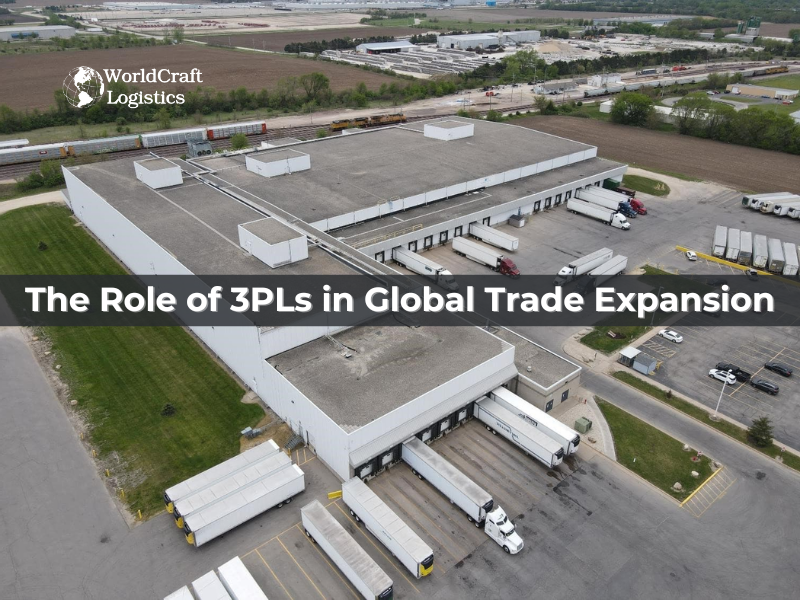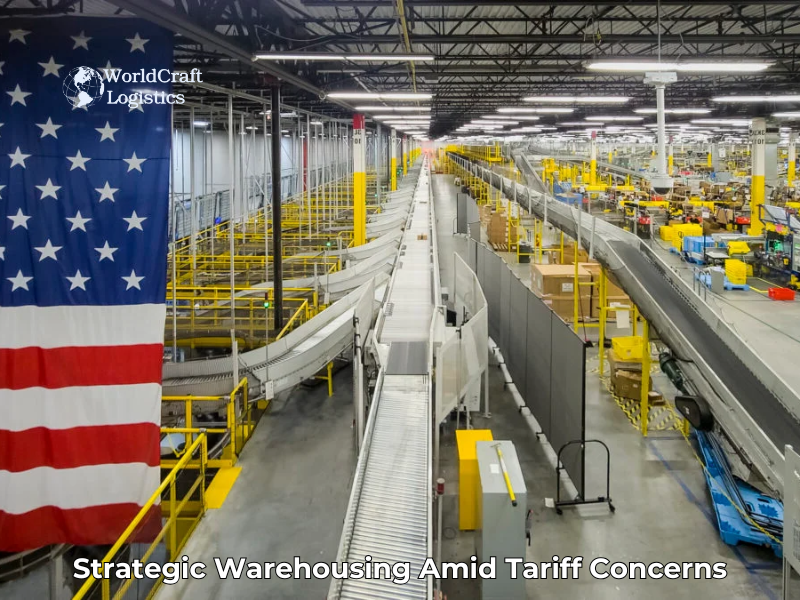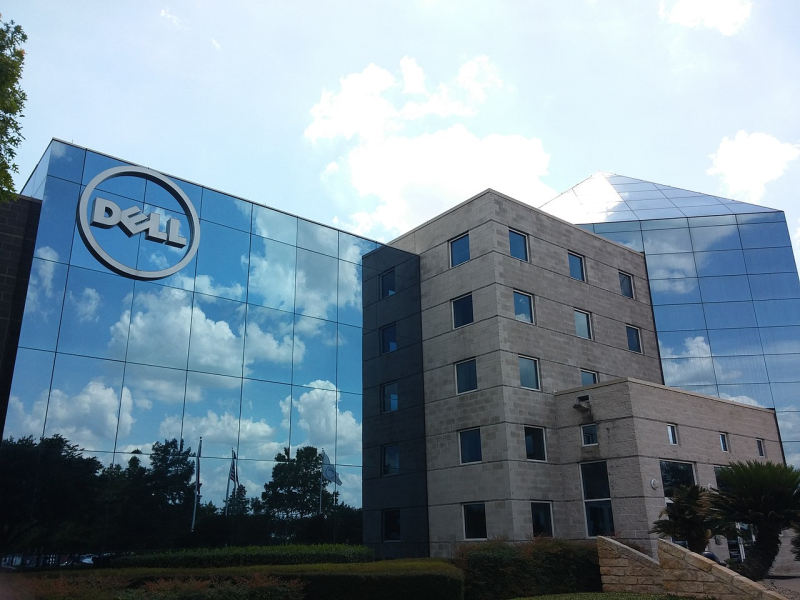
Starting June 1st, 2023 Our warehouse fee will be $0.65/cubic foot per month
In effort to lower the warehouse storage fee during inflation, we have went narrow aisle racking.This construction took us four months but the project is finally completed. With narrow aisle racking, we are able to drop storage by 24%.We as partners will go through this inflation together.
03/05/2025
Asian logistics companies are increasingly leasing warehouse space across the United States to adapt to shifts in global trade, e-commerce, and manufacturing. This trend is driven by factors such as rising cross-border e-commerce demand, supply chain disruptions, and evolving trade policies.
Third-party logistics providers (3PLs) play a critical role in global trade, offering storage, fulfillment, and distribution services for online retailers and other businesses. By leasing U.S. warehouses, these companies can streamline supply chains, optimize delivery times, and mitigate potential tariff risks.

According to a report by global real estate firm Cushman & Wakefield, leasing by Asia-based logistics operators more than doubled in key U.S. logistics hubs such as New Jersey and Los Angeles in 2024 compared to the previous year. The U.S. warehouse market saw a surge in demand following the COVID-19 pandemic-driven e-commerce boom, but a subsequent slowdown in domestic retail expansion has led landlords to welcome foreign logistics firms looking to establish a footprint.
CBRE Group, a leading real estate services company, highlighted this leasing surge as a bright spot in an otherwise cooling warehouse market. Prologis, a global logistics real estate firm, estimated that Chinese and other Asia-based logistics providers accounted for 20% of new U.S. warehouse leases through the third quarter of 2024.
>>> Read more: WMS Update for 2024: Converging e-commerce and warehousing
Some companies are leasing warehouses to hedge against potential tariffs on imported goods. In February 2024, U.S. President Donald Trump imposed a 10% tariff on goods imported from China, set to increase to 20% by mid-year. The uncertainty surrounding trade policies has pushed many Asia-based firms to store more inventory domestically, ensuring smoother operations and cost efficiency.

The Associated Press recently spoke with Jason Tolliver, co-leader of Cushman & Wakefield’s Americas logistics and industrial services practice, about these leasing trends. Below are key takeaways from the discussion:
Q: Data suggests a rise in warehouse leasing by Asian logistics firms. What trends are emerging?
A: Over the past two years, we have seen a significant increase in leasing activity by Asian 3PLs, driven by market complexity and trade uncertainties. As global supply chains evolve, 3PLs offer scale and expertise to navigate these challenges.
A key driver has been the de minimis exemption, which allows low-value shipments to enter the U.S. duty-free. This has encouraged logistics firms to position inventory closer to U.S. consumers, facilitating faster fulfillment while leveraging storage networks across Asia.
Q: How do U.S.-based warehouses benefit companies using the de minimis model?
A: Speed and efficiency are paramount. U.S.-based warehouses enable companies to ship directly to consumers while also streamlining reverse logistics, such as processing returns and reselling products.
While Asian 3PLs historically had a smaller footprint in the U.S. compared to major e-commerce players, their aggressive expansion in recent years has fueled warehouse leasing growth. As some domestic retailers scaled back on warehouse commitments, Asian logistics firms seized the opportunity to secure strategic locations.
Q: How do these firms compare in overall leasing activity?
A: It depends on the region, but 3PLs—both domestic and international—are the strongest drivers of leasing activity. They are expected to remain the most significant lessees of logistics and industrial space in North America, followed by manufacturers, then retailers and wholesalers.
Q: President Trump initially considered and then paused additional tariffs on small-value packages from China. Have companies reacted to this policy shift?
A: We haven’t observed immediate changes in leasing strategies. Unlike financial markets, commercial real estate responds more gradually to policy shifts. However, retailers and wholesalers are preparing contingency plans, closely monitoring potential regulatory developments before making large-scale adjustments.
Jimmy Tran, CEO of Worldcraft Logistics, weighed in on the trend, stating:
"Leasing warehouse space in the U.S. is no longer just an option for Asian logistics firms—it’s a necessity. With supply chain volatility and shifting trade policies, having a strong presence close to American consumers gives companies an edge in speed and reliability. At Worldcraft Logistics, we've seen firsthand how strategic warehousing can enhance efficiency, reduce lead times, and ultimately improve customer satisfaction. The future of global logistics lies in agility, and expanding into key markets like the U.S. is a crucial part of that strategy."
Read more:
Industry experts predict that the presence of Asian logistics firms in the U.S. warehouse market will continue growing. The combination of e-commerce expansion, trade policy uncertainties, and the need for faster, more efficient distribution networks makes leasing U.S. warehouses a strategic priority for these companies.

As global trade dynamics evolve, the ability of logistics operators to adapt will be critical. Whether through regionalization, nearshoring, or increased reliance on third-party logistics providers, securing a foothold in key U.S. logistics hubs will remain a competitive advantage for Asian firms looking to scale their international operations.
SEO
Digital Marketing/SEO Specialist
Simon Mang is an SEO and Digital Marketing expert at Wordcraft Logistics. With many years of experience in the field of digital marketing, he has shaped and built strategies to effectively promote Wordcraft Logistics' online presence. With a deep understanding of the logistics industry, I have shared more than 500 specialized articles on many different topics.

Hot News
08/05/2024

Hot News
02/23/2023

Hot News
02/23/2023

Hot News
02/06/2023
Hot News
02/07/2023